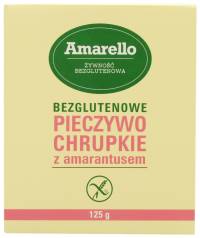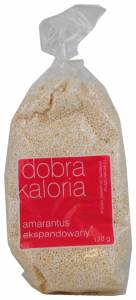Fuelled by interest in naturalness and ‘getting back to basics’, ancient grains such as amaranth continue to grow in popularity, as explained in more detail in Mintel’s Global Food and Drink Trend – Diet by DNA. Amaranth, which actually is not a cereal grain but a seed so can be referred to as a grain-like seed, was a staple of the ancient Aztec diet.
Mintel’s research reveals that Poles have a particular interest in foods enriched with ancient grains. This preference is most pronounced amongst bakery and biscuit consumers. For example, over half of Poles claim to be interested in buying biscuits made with non-wheat grains such as amaranth, quinoa and spelt. Amaranth is especially interesting as it is claimed to have more protein than most other grains and to be particularly high in the amino acid lysine. It is also the only grain which contains vitamin C. Moreover, it is naturally gluten-free and provides a rich source of calcium, iron, magnesium, phosphorus and potassium as well as fibre and B vitamins.

Alongside its wholesomeness and versatility, amaranth – in the form of both seed and flour – has seen increased use in new food launches across the global market, and also in Poland. Established in 1993, Kubara is a Poland-based healthy food manufacturer who has specialised in amaranth-based creations since 2005. Many of its products are organic and feature gluten-free claims.
The key ingredient in Kubara’s amaranth-based products is popped amaranth, as seen in the example of its flagship sweet biscuit range under the name Amarelki. Beyond sweet biscuits, Kubara has also incorporated amaranth into cold and hot breakfast cereals, snack bars, baking ingredients (primarily plain popped amaranth and flour) and crispbread.

Amaranth fills the growing consumer desire for added health benefits and new taste experiences in Poland. However, affordability remains key as many consumers are reluctant to pay a higher price for products enriched with ancient grains. For example, almost half of Poles would like to buy cakes formulated with ancient grains but are not willing to spend more on them. Ancient grains, and amaranth in particular, have considerable potential to further expand across the Polish market, also beyond more established categories.
Honorata Jarocka joined Mintel in 2013 and is a Senior Food and Drink Analyst for Poland. Her area of particular interest is health and wellness trends as well as innovative product concepts within the Polish food and drink industry and also in the wider Eastern European region. Honorata is a member of PTBRiO (Polskie Towarzystwo Badaczy Rynku i Opinii – Polish Society for Opinion and Marketing Research) and a regular speaker at industry events.








































